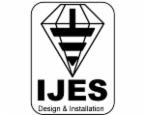Testing for Domestic, Commercial and Industrial Premises.
At Ivan Jones Electrical Services we are able to offer a comprehensive range of testing and inspecting services. Whether you are a domestic, commercial or industrial client we can carry out testing and inspecting in all forms, Insuring at all times that the clients requirements are met and that the cost remains competative.From a minor works certificate to installation certificates. Periodic Inspections on existing installations and insuring compliance with Part P of the building regulations, along with issuing the relevant certification. Portable Appliance Testing is also carried out by our sister company PAT Excel.
Periodic Inspection Reports are required to insure that the installation is safe and in sound working order in accordance with the requirements of BS7671. It is recommended that every electrical installation is subjected to periodic inspection and testing. It would be a requirement to carry out one of these reports prior to upgrading the consumer unit, to indicate any area of work that may be evident prior to the upgrade taking place. An insurance company may also request to view this in the event of a claim resulting from an electrical fault to verify that "reasonable preventive action has been taken" failure to produce such evidence may result in the insurance company invalidating any such claim. Over the past few years it has become evident that some companies are willing to carry out these inspections at an extremely low price to insure work, generally maximising on the cost of the rectification works, or more worryingly compromising the safety of the installation. If a comprehensive "PIR" has not been carried out on your installation it will be a requirement to carry out a full test on your installation to insure all aspects are safe and compliant. A standard 2-3 bedroom property should take approximately 1/2 a day to carry out properly, though the more circuits involved add to the time. If you require an inspection that covers you, expect to pay a little more than that unbelievable bargain price that is sometimes quoted.
Minor Electrical Works should be issued for any physical alteration to an existing part of the installation and should indicate the circuit that has been worked on and the alteration that has been carried out, also indicating the area to which the work has been carried out. It is not usually a requirement to issue a minor works certificate for a direct replacement of an item such as a heating unit or light switch for example, though generally this is to the discretion of the engineer dependent on the condition of the installation.
Electrical Installation Certificates are issued when either a new circuit is installed, a replacement consumer unit or an upgrade of circuit protection i.e. an MCB type circuit breaker is replaced with an RCBO changing the characteristics of the circuit. In the event numerous minor works are carried out over several circuits you may also find a detailed installation certificate is issued rather than many minor works certificates.
Visual Inspection Certificates are a form of proving that the installation has been inspected for faults and damage and to bring to the attention any obvious deviation from the requirements of BS7671. They are often used for let properties, this form of inspection is usually carried out on an annual basis and/or at the end of a tenancy and should only be considered once the the initial installation has had a full periodic inspection. It is seen as an inspection that should be carried out between the periods specified between the date of the initial test and the due date of the next Periodic Inspection.
Portable Appliance Compliance Certificate should be issued once all the appliances have been "PAT" tested and should be displayed in the property to indicate that the test has been carried out and also when the next test is due. Portable appliance testing is required by business's, schools and other organisations that allow members of the public, volunteers, staff or visitors to come into contact with their electrical appliances or equipment, to verify it has been tested and is safe for use. It is an essential part of compliance with the Electricity at Work Act 1989. Not all appliances need testing on an annual basis.
Danger Notification Certificates are only issued when, on attending or testing an installation, it has been noted and is considered that the installation proves to be a potential danger to persons, property or livestock due to the hazards that may arise from the use of electricity. This is to inform the client of the imminent danger and the work required to make that part of the installation safe. A Danger Notification Certificate is the most serious preventive action action an electrician can take, they are not issued lightly and should be taken extremely seriously.
Fire Alarm and Emergency Light testing is also carried out by our company and we issue certificates in accordance with the requirements of BS5839 and BS5266 respectively. It is advised in BS5839 that Fire Alarm Systems should be tested by a competent person to a frequency that does not exceed six months. BS5266 recommends Emergency Lighting should be tested by a competent person on at least an annual basis. In both cases regular user checks are required between these tests as indicated in the respective British Standard.
Part P Certification Is relevant only to domestic installations and forms part of the Building Regulations. To generalise any electrical work that is carried out in the areas of a kitchen, bathroom, outdoors or out buildings, new circuit, new consumer unit, consumer unit upgrade, earthing upgrade or installation of LV lighting, electric under floor heating or private electricity generating equipment must be notified under Part P legislation. When we carry out any form of this work we have to complete a notification of the works which is logged with your local building control on their database, in turn you will receive a certificate in the post via our governing body, the NICEIC briefly stating the work that has been carried out. It is a criminal offence not to notify the works that have been carried out. The certificates you receive should be kept with your property legal documents as it is likely to be required should you ever sell the property.
"All our engineers are trained and competent in the work they do"
Registered Office: 94 Fore Street. Bodmin, Cornwall. PL31 2HR


